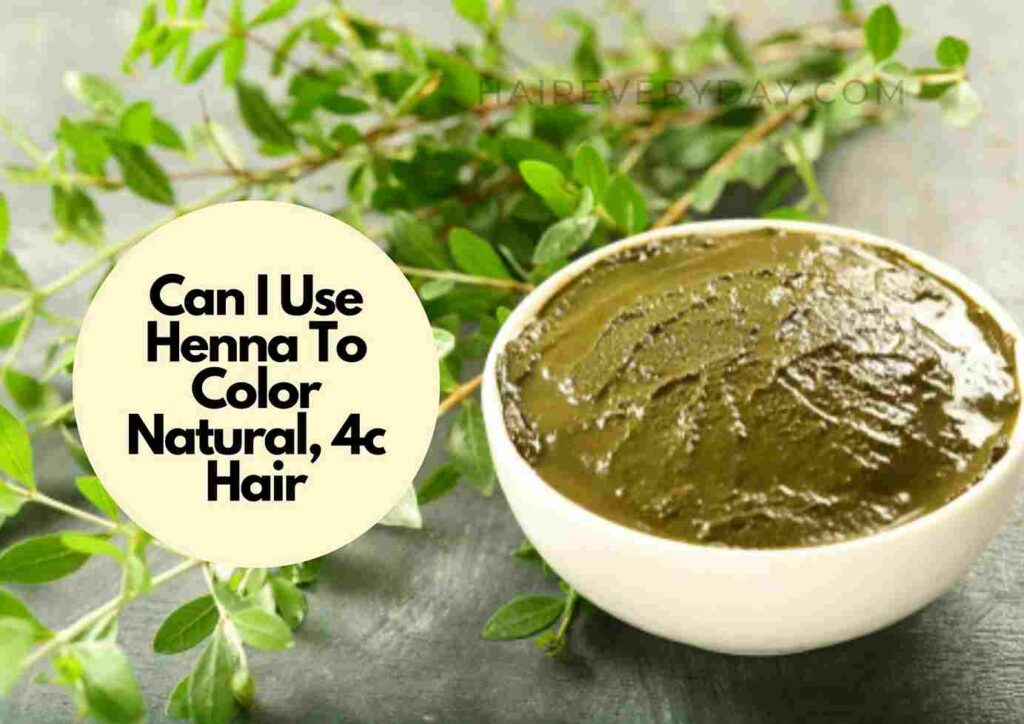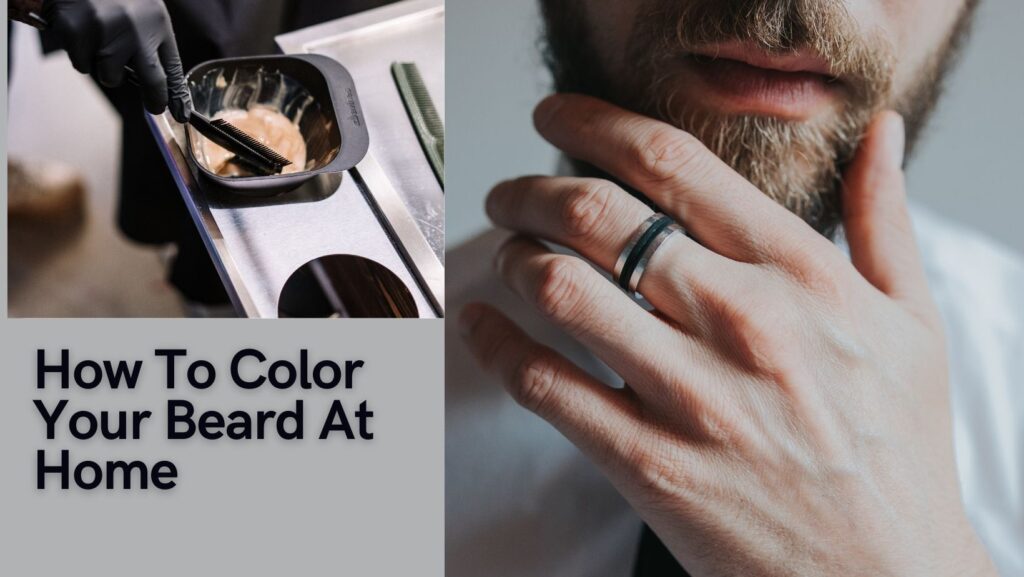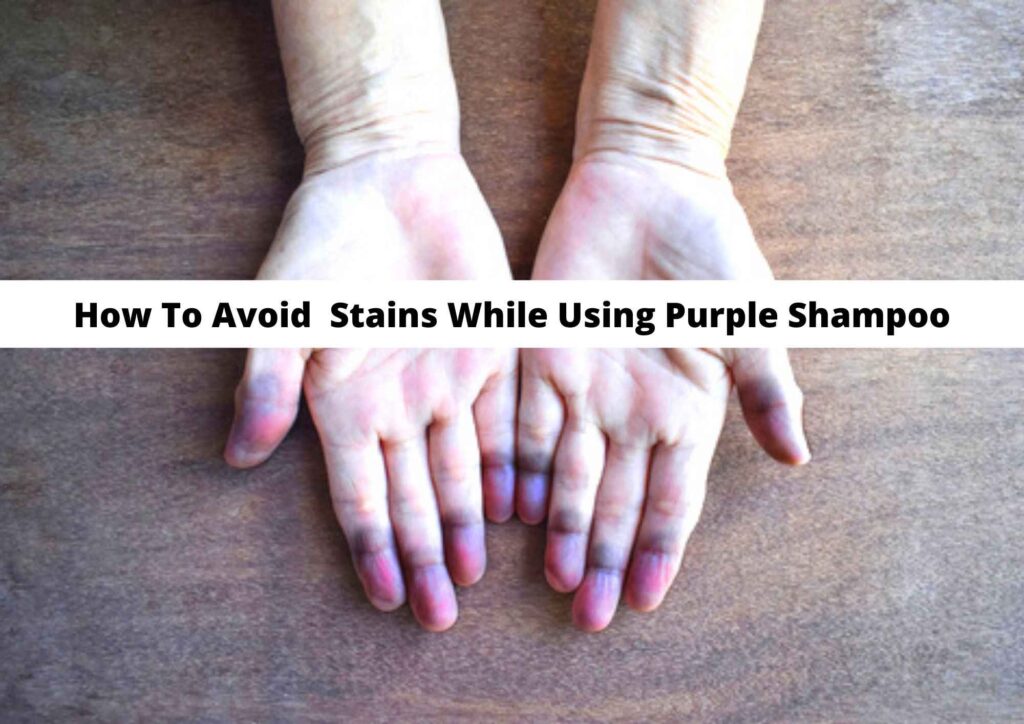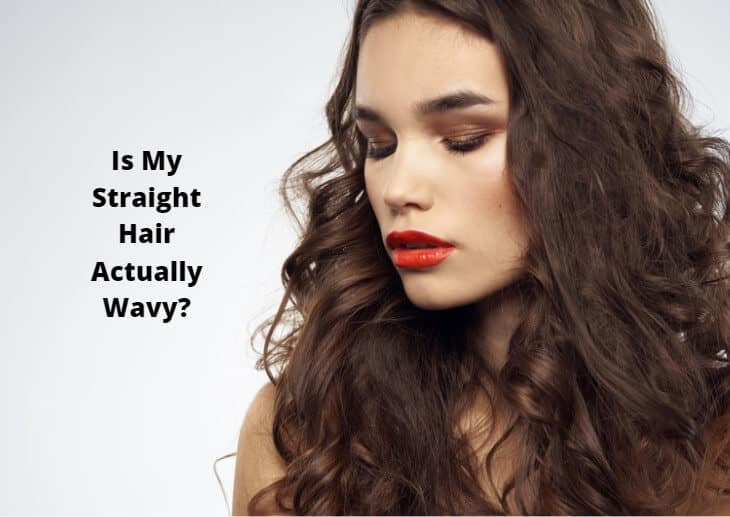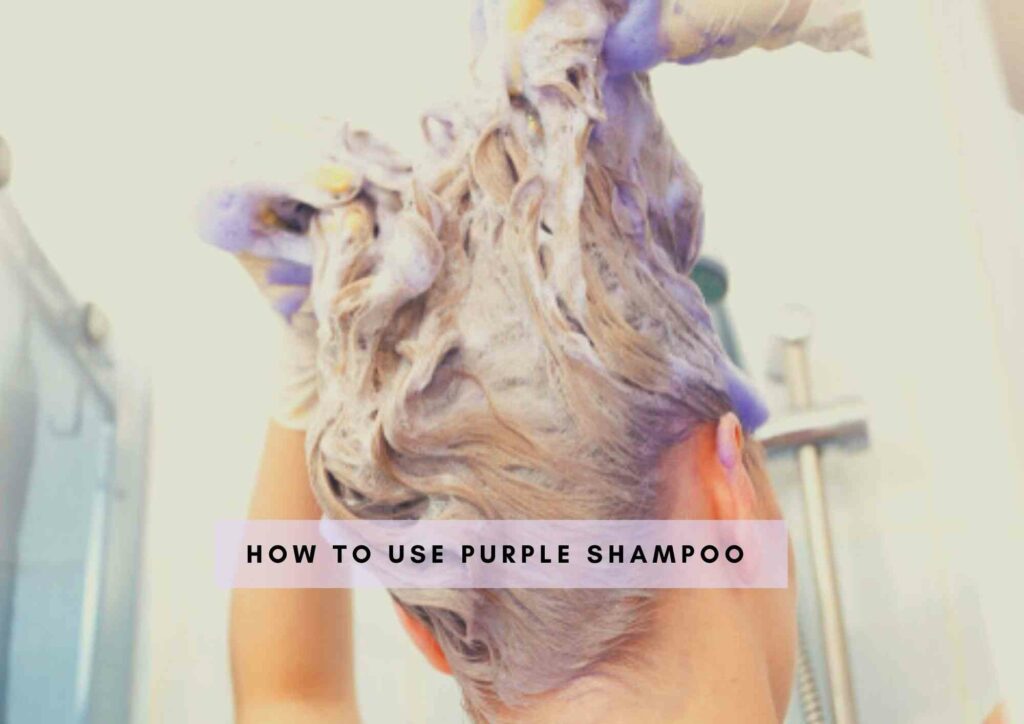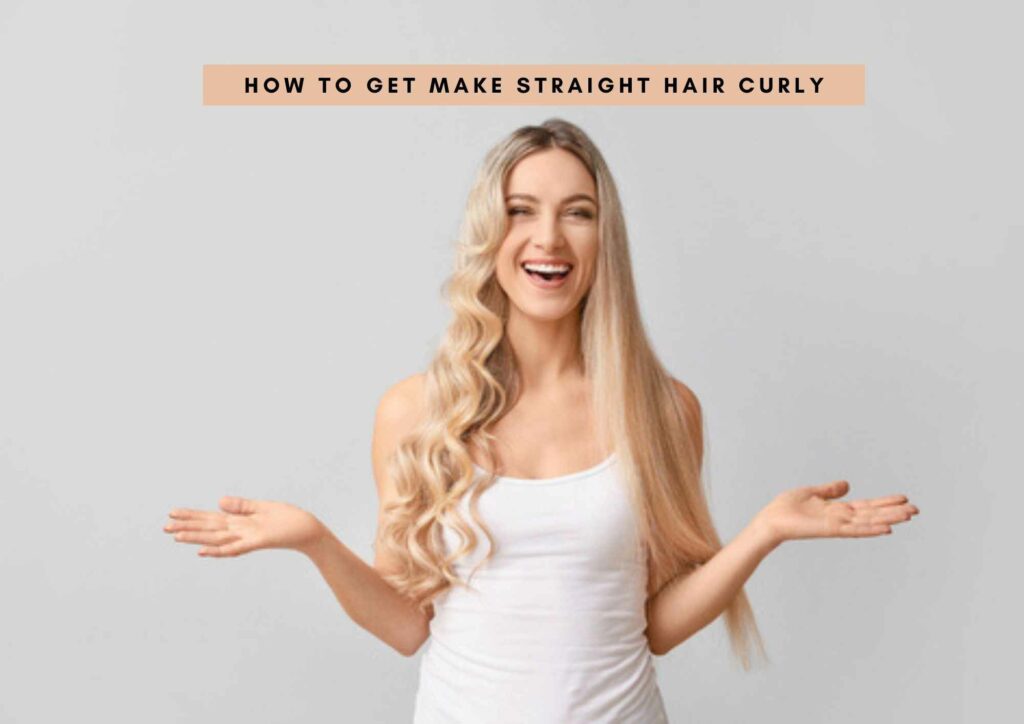Can I use henna for natural hair? Are these disadvantages to using henna for African American hair? Well, look at my article below to find out.
I love coloring my natural hair, but all my Black ladies out there know what hair dye (especially the one with bleach) can do to your tresses! I had committed to using color depositing dyes like Arctic Fox for a long time, but unfortunately these types of dyes won’t stick on my hair and wash away easily.
So when I heard of henna from an Indian friend, I thought I hit the jackpot!
Henna is an ancient hair color treatment dating back to Ancient Egypt. It is a natural dye made from the leaves of the Henna tree and has been used traditionally to color hair, add texture and layer, and even condition and protect.
Related: How To Wash Natural Hair
Related: How To Dry Natural Hair Fast
For natural hair, Henna is an excellent option to enhance the texture, color, and strength of hair. It is a safe, natural, and cost-effective product that offers several advantages, such as conditioning and protection of the hair follicles.
However, there can also be some side effects of using Henna for natural hair like dryness and lack of elasticity.
In this article, I will explore the advantages and potential side effects of using Henna for natural hair, helping you to make an informed decision about whether or not it is the best choice for you.
Can I Use Henna For Natural Hair
Can henna be applied to natural hair
Yes, henna can be applied to natural hair! Henna has been a popular hair coloring method for several centuries as it is both plant-based and non-toxic.
Using henna for natural hair not only provides concentrated color, it is also easier on the scalp than synthetic dyes.
Henna is great for those who are looking for a natural solution to changing the color of their hair in a safe and easy way without any harsh chemicals. Henna has several advantages for natural hair.
Firstly, it is a natural way to add color with a range of shades from red to dark brown. In addition, henna seals in moisture, helping to strengthen, protect and add shine to natural hair. It is also amazing for repairing split ends, leaving your hair in glorious condition.
When using henna to color your natural hair, there are some side effects to consider. For some, their scalp and neck may become itchy even after rinsing.
It may also be difficult to wash off henna, depending on the type of henna and the proportion of indigo added to the mixture. Additionally, while henna is a natural hair dye, it cannot lighten hair, but it can darken blonde or light-colored locks.
Despite the potential for side effects, henna is still a beneficial way to add color to your natural hair in a safe and healthy way.
With so many great advantages, it is definitely worth trying if you are looking to add a new dimension to your look without using ammonia-based, damaging hair dyes.
What are the benefits of using henna for natural hair?
Using henna on natural hair offers a number of benefits. Here are a few:
It is completely natural
Unlike chemical dyes, it does not contain harmful ingredients, resulting in a more gentle, natural color. This means there is no risk of damage or dryness over time, and your hair will still retain its original softness and shine.
It lasts longer than color depositing dyes
Henna is also very long-lasting, so you don’t have to worry about retouching your color often, saving both time and money. It’s also great for those who are looking for an easy to maintain look, because henna deposits the color in the form of a powder, making it easy to micro-manage different sections of hair.
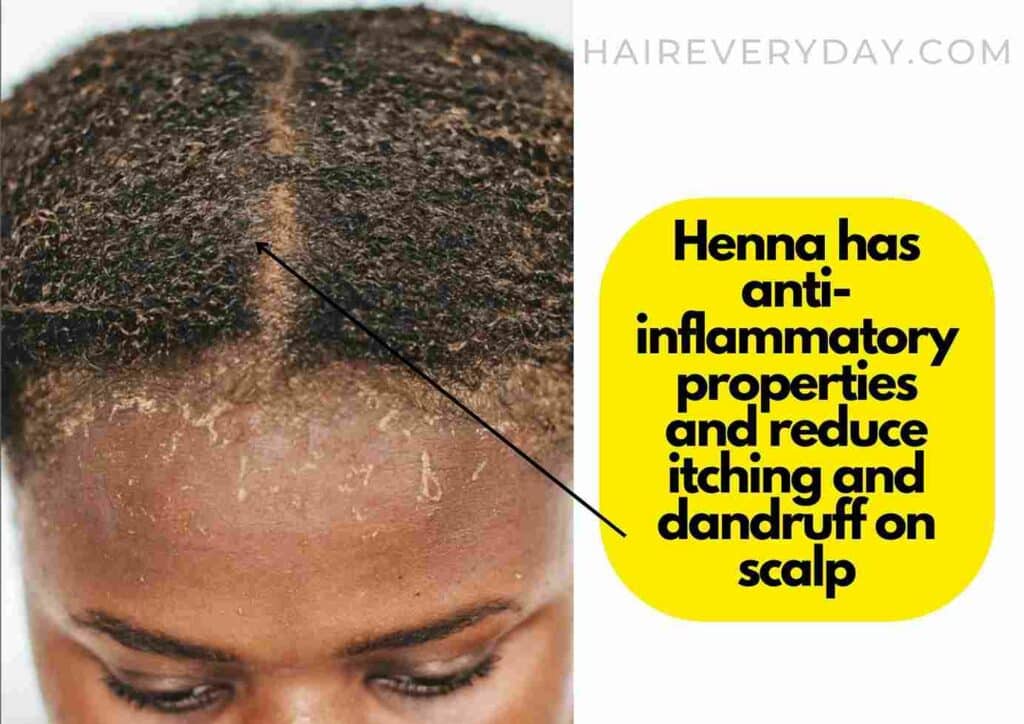
You can cover greys often and easily
Thanks to henna, you will also no longer worry about those horrible roots showing up suddenly. By applying henna regularly, the color will remain evenly distributed and the gray hairs will be camouflaged.
It helps condition hair and treats scalp conditions like dandruff
Additionally, henna helps to increase the volume of your hair, as well as treat scalp problems like dandruff and itchy scalp. It can reduce dryness, combat split ends and even act as an antioxidant, helping to protect the hair from stress and pollution.
Henna adds shine to natural, African American hair
Finally, using henna can give an extra dose of shine and sheen to your hair. This is especially helpful if your hair has gone through a lot of styling and bleaching treatments. Henna will seal the cuticles, working as a repairing element, enhancing the overall look of the hair.
What are the side effects of using henna for natural hair
Using henna to dye your natural hair can come with a range of potential side effects. As always, it’s best to consult a medical professional before using any product on your hair.
That said, here are some of the side effects that can come with applying henna to natural hair. Itching and discomfort can be a common side effect of henna treatments. This may be due to a sensitivity or allergy to certain elements in the henna, such as the metal salts found in some brands.
Additionally, if the henna is not applied properly or is left on for too long, the mixture can end up drying the scalp or allowing for an uncomfortable build-up of the product on the hair and scalp. Henna can also leave unwanted staining on your skin.
While naturally occurring henna can stain skin, there are some brands on the market which can stain more significantly.
Henna treatments can also leave a red-orange residue on the scalp, which can be hard to remove and may be uncomfortable. In some cases, henna can make natural hair more brittle, dry and prone to breakage.
This is likely caused by the oxidative property of henna, which can break down the natural bonds in the hair shaft, leaving it more prone to damage. It’s worth noting that many people take great care to ensure they use natural, quality henna to minimize this risk.
Also, it’s important to note that henna can react with other hair treatments, so it is best to use it as its own stand-alone dyeing agent.
All in all, it’s paramount to properly assess any risks before deciding to use henna for natural hair. It’s advisable to speak to a professional to ensure that you’re making the right decision for your hair.
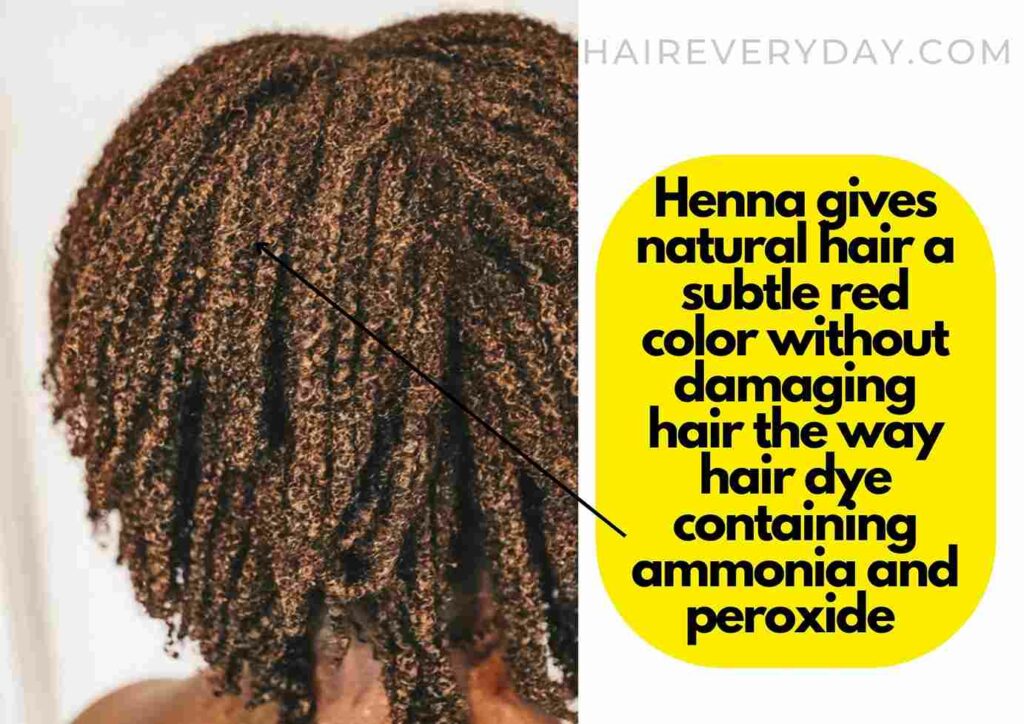
Is henna or hair dye better for natural, African American hair
When it comes to achieving the perfect hair color for African American hair, many people are torn between using henna or conventional hair dyes. Both of these options offer different advantages and disadvantages and have unique benefits to their usage.
It’s important to be aware of the pros and cons of each option before making a decision. Henna is a natural dye derived from a small flowering shrub, and is typically used as a form of body art or to color hair. It is generally considered to be safer than hair dyes since it’s more gentle on the hair and is free of harsh chemicals.
Furthermore, henna can help with the texture of natural hair, giving it a luster and shine. The main downside to henna is that it’s not as effective as conventional hair dyes in covering gray hair and can be difficult to remove when unwanted.
Conventional hair dyes use chemicals to deposit color onto the hair and range from the most permanent hair dyes, to those that last a few weeks or even wash out in one shampoo. Due to this, they are the most common form of hair dye used for African American hair.
People tend to like conventional hair dyes due to the wide range of colors available as well as the diverse longevity options. On the other hand, hair dyes can damage the hair and may cause allergic reactions due to harsh chemicals.
Ultimately, it all depends on the person’s preference. Henna would be a great choice if you’re looking for a more natural look and your desired color isn’t too drastic; otherwise hair dyes offer great coverage and color variety. Be sure to consult a professional if needed.
What can I mix with henna to apply for natural hair?
Applying henna to natural hair is an increasingly popular choice for those looking for a more natural hair color.
While henna has many advantages when applied to natural hair, it’s important to know what else you can mix with it before application. Mixing the right ingredients with your henna is key for achieving optimal results for your natural hair.
Henna itself is a plant powder made from the lawsonia plant and can be mixed with other things to create a paste used to dye your hair. Generally, an acidic liquid is used in combination with henna, such as apple cider vinegar, black tea, coffee, or lemon juice. These ingredients help to react with the dye and activate it so that your hair can hold onto its color.
In addition, adding oils to your henna paste can help to keep your hair nourished and add moisture while you are coloring it. Popular oils used to mix with henna include jojoba oil, tea tree oil, coconut oil, or castor oil. All of these can help to soothe dry hair while also keeping it looking shiny and healthy.
To get started mixing your henna paste, it’s important to start slowly and gradually add baking soda, salt, or coffee until you have a consistency that’s easy to spread. As soon as the henna paste begins to form, you can add your preferred oils and acidic liquid.
Incorporate these two components until you have the optimal mixture for your desired hair color. Applying henna to natural hair can result in beautiful color and plenty of moisture with the right concoction.
As you experiment and determine which ingredients work best for your hair, you can also customize the color to find the perfect hue for you.
Summary on using Henna For African American Hair
Henna can be a great natural alternative for maintaining healthy hair color and condition. It is a centuries-old practice that provides many advantages from deeply nourishing hair to serving as a natural conditioner.
So it’s great to use on African American or “natural” hair, as it can help color hair while also conditioning it, which is very rare.
However, it is important to keep in mind that using henna on natural hair can also have some side effects, such as the potential for hair to become brittle or dry.
Those considering using henna on natural hair must be keenly aware of the potential risks and should seek out advice from a professional. Additionally, it can be used to create a variety of colors ranging from browns to reds, but not any other shade. So that’s a downside to it too.
To conclude it all, henna is an excellent natural remedy for natural hair and can help individuals maintain their hair color with confidence.
Also Read:
How To Mix Henna And Indigo Together For Black Hair
Best Spray Moisturizer For Natural Hair
How To Seal In Moisture In Natural Hair
How Long Does Henna Last On Straight Hair
How To Mix Henna With Lemon Juice For Unbleached Hair
Should I Use Hot Water Or Cold Water For Mixing Henna
To Summarize

